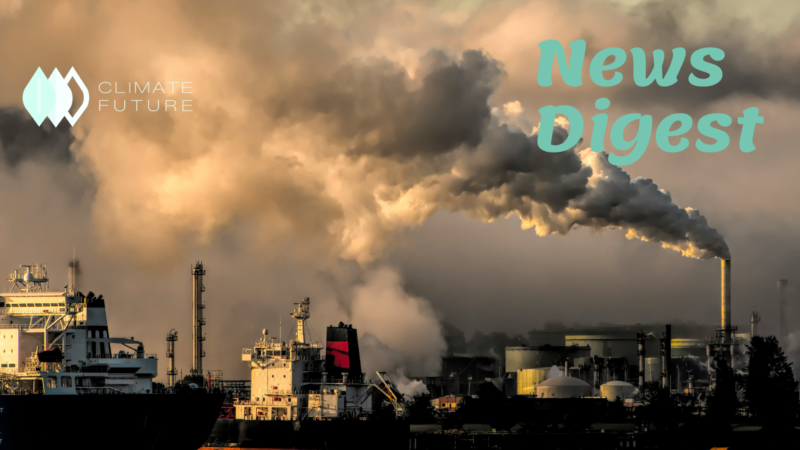Limiting the damage: UN helps policy-makers tackle climate change
Armando Calidonio who is the mayor of the big industrial city of San Pedro Sula in Honduras said the floods have increased significantly and changed into stronger events which reach neighborhoods and the areas that were not affected before. San Pedro Sula has always been a high-risk area to flooding and tropical storms. The problem becomes worse since climate change threatens the weather systems. To help the residents like the Mayor protect his citizens and find ways to adapt to future climate change impacts, the UN University’s Institute of Environment and Human Security (UNIEHS) uses a method called Economics of Climate Adaptation (ECA) which shows cost effective strategies for the specific regions. The UNU-EHS and its partners expected that by using the ECA method, the yearly damages from different climate hazards would double by 2042 in the municipality of San Pedro Sula. They looked at the multiple options to solve the risk and find the best solutions by working closely with the local administration. Furthermore, the study found out that the municipality would benefit from additional investments into climate risk-related data such as upgrading early warning systems and the weather monitoring network. This could also support the local government to access the funding for climate adaptation measures.
Women building a sustainable future: India’s rural energy pioneers
In India, salt farming is hard work. In Gujarat, women dig wells, huts and pump up brine which they separate out with a series of pans, ultimately crystallizing salt. All elements of the process have to be finished up by hand apart from pumping. The women work without a contract and the pay is poor. SEWA aimed to train around 1000 women as solar pump and solar panel technicians. The project is a collaboration between Renew Power which is India’s leading clean energy company, the Indian Self-Employed Women’s Association (SEWA), the United Nations Environment Program (UNEP) and the western state of Gujarat. It aims to provide women the skills to build a new, better paid and more rewarding career in the renewable energy sector. The women also get technical training from the Electronics Sector Skills Council of India. UNEP aims to train rural women to have livelihoods with clean energy. The projects improve efforts to attain a number of Sustainable Development Goals such as affordable clean energy, climate action, gender equality, decent work and economic growth and global climate funds.
Without climate action, extreme weather will trigger global humanitarian needs
Cyclone Emnati is the fourth tropical storm which has hit Madagascar in a month. According to the reports from World Food Program (WFP), it is estimated that the storms: Emnati, Batsirai, Dumako and Ana have hit the island nations with a huge damage to agricultural land. Cash crops like coffee, cloves and pepper have been affected largely. WFP said about 90 per cent of crops could be destroyed in some of the affected areas, especially for a country where most of the people rely on agriculture for living. Disaster prone areas like southern Madagascar are already at a breaking point where the cyclone can lead to deepening hunger. Even though food and cash assistance are being sent to remove the impacts of recent storms like logistics and IT support, WFP highlighted the importance of long-term climate adaptation to support the communities for the preparation to respond and recover from climate shocks and stresses. The purpose of the WFP’s Country Strategic Plan in Madagascar is to improve an integrated social protection system to make sure that vulnerable populations can access nutritious food before and after crises.
UN-backed report warns of rising wildfire threat
According to a study, the Arctic and other regions unaffected by wildfires face elevated risk previously. The authors call for a critical change in government response which emphasizes on preparation and prevention. Wildfires seriously affect the world’s poorest nations. Smoke from wildfires affects people’s health directly by causing cardiovascular and respiratory impacts. The cost of rebuilding can be beyond the limit for low-income countries. Some animal and plant species are closer to extinction due to the impact of wildfires. The 2020 bushfires in Australia are estimated to disappear billions of wild and domesticated animals. It is crucial to understand the behavior of wildfires. Prevention is required with a combination of science and data-based monitoring systems with indigenous knowledge and for better international and regional cooperation. Governments agreed to adopt a Fire Ready Formula which calls for two thirds of the funding to be devoted to prevention, preparedness, recovery and planning and one third for response. At present, direct responses to wildfires get over half of related spending with less than one per cent allocated for prevention and planning. Furthermore, the author calls for stronger international standards for the health and safety of firefighters and for lessening the threats they face at the workplace. This includes minimizing the potential for life-threatening events, raising awareness of the risks of smoke inhalation and providing access to adequate nutrition, hydration, rest and recovery between shifts.
Women building a sustainable future: fighting back the desert, amid Niger’s refugee and climate crises
A town some 100 kilometers north of Niger’s capital Niamey, in the dusty plains outside Ouallam, a variety of vegetables sprout from the soil in a neat plot. Around 450 women who work at this land are drawn from three distinct communities such as locals, displaced people and insecurity where Niger and the others are refugees from neighboring Mali. Rabi Saley who settled in the area said “We did this together with different communities: the displaced, the local community of Ouallam and the refugees.” The vegetables they grow such as onions, potatoes, bell peppers, cabbages and watermelons help to provide an income by selling at a local market and feed the children. With this creation, the market golden project also supported the arrival of thousands of refugees smoothly and internally displaced people to the town. In April 2020, UNHCR launched an initiative at Ouallam’s market garden to encourage the women to learn to nourish the plants using drip irrigation with the aim to reduce evaporation and preserve water resources. The benefit of the project is to help Nigeriens adapt to climate change.



